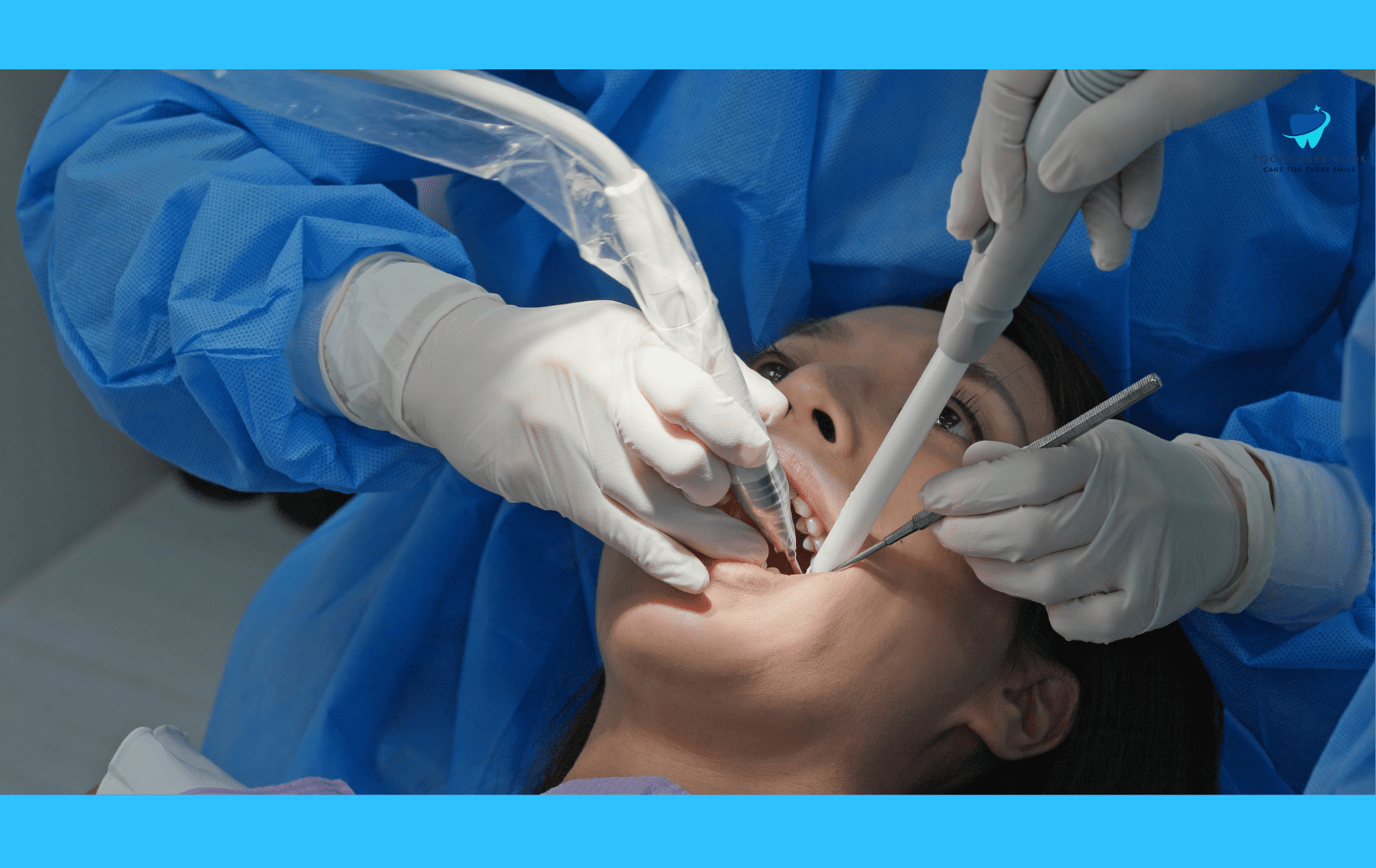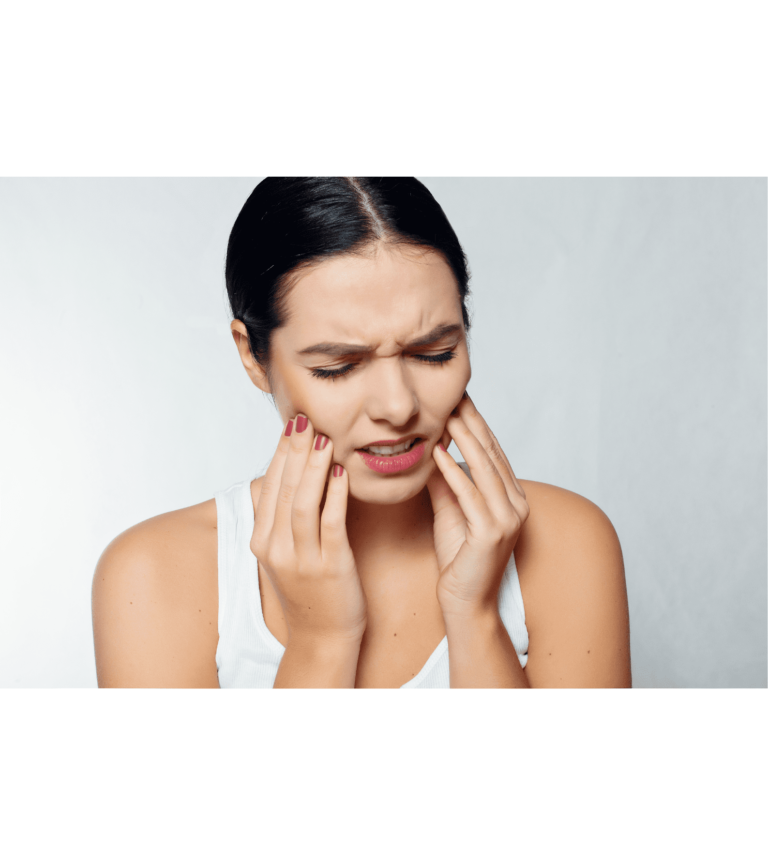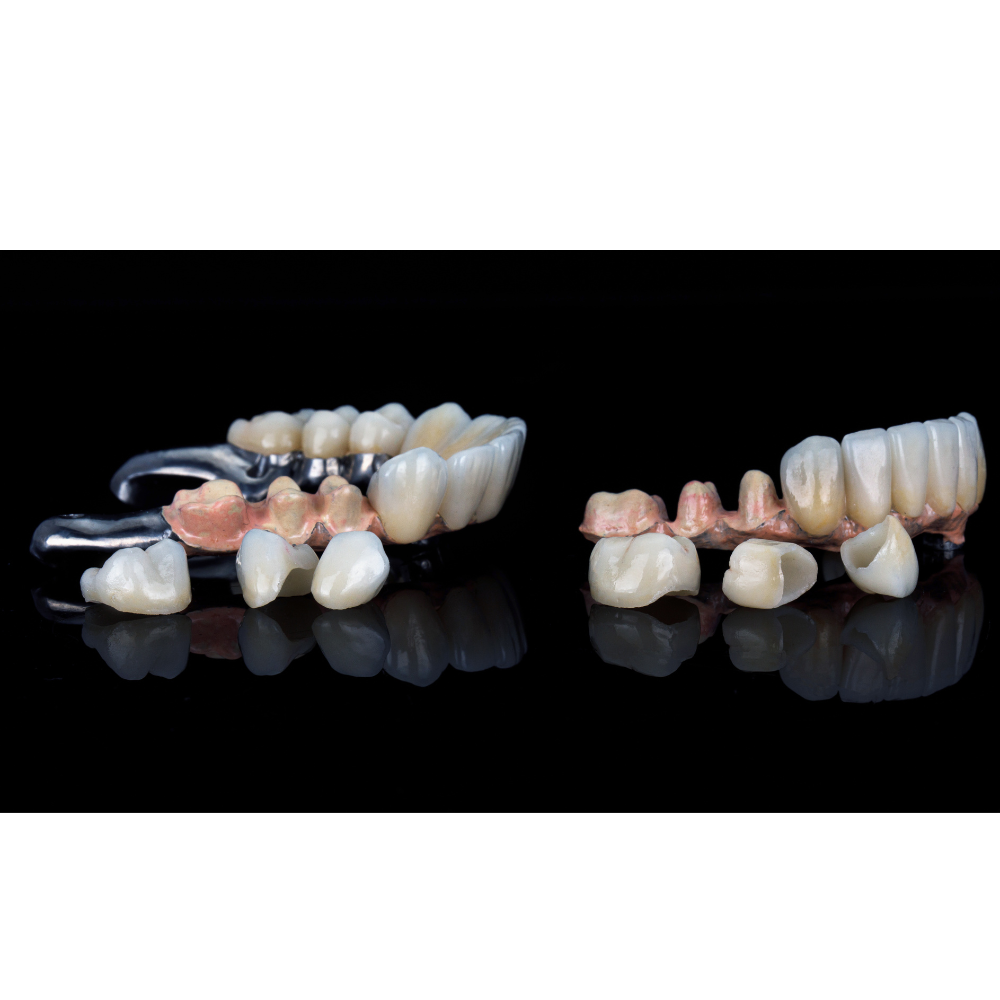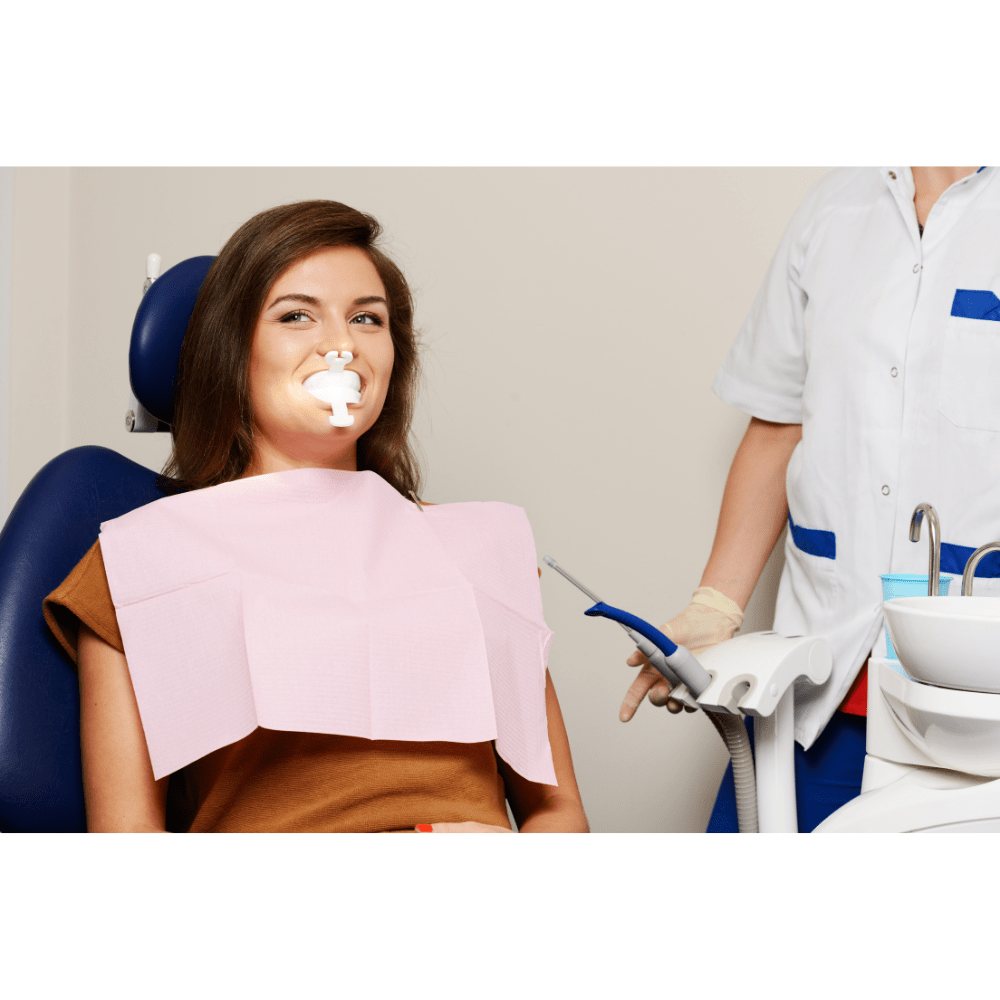Teeth Pain After Cleaning | The Potential Reasons
Teeth pain after cleaning is a common experience for many individuals in the United States. This discomfort can range from mild sensitivity to more pronounced pain. It’s important to understand that this post-cleaning pain can stem from several reasons.
Learning about the possible causes of toothache after cleaning can help overcome anxiety and promote better oral health practices. Here we’ll explore these potential reasons and how to manage and prevent such discomfort. We first need to know whether sensitivity after dental cleaning is normal.
Is Sensitivity After Dental Cleaning Normal?
Yes, sensitivity after dental cleaning is normal. Many people experience this temporary discomfort after a professional cleaning. The process leads to heightened sensitivity to hot, cold, or sweet stimuli. Also, the thorough cleaning can sometimes cause minor gum irritation which contributes to the overall sensitivity.
Why Teeth Pain After Cleaning Occurs?
Teeth pain after cleaning occurs due to the following reasons:
- Removing plaque and tartar can expose sensitive parts of the teeth.
- The cleaning process can temporarily irritate the gums, causing pain.
- Issues like gum disease or tooth decay can be aggravated by cleaning which will cause some toothache after cleaning.
- Sometimes, the methods used during cleaning can lead to discomfort.
- Teeth might become temporarily sensitive to hot and cold due to the thorough cleaning.
Here’s the standard dental cleaning procedure that dentists usually follow.
Dental Cleaning Procedure
Scaling:
Your dentist will start examining your mouth, looking for signs of gum disease, cavities, or other oral health issues. With the help of a small mirror and a scaler, he will remove plaque and tartar from around the gum line and between your teeth.
Gritty Toothpaste Cleaning:
After scaling, a high-powered electric brush is used with gritty toothpaste to deep clean and polish your teeth. This will remove any remaining plaque and surface stains.
Professional Flossing:
The hygienist then flosses your teeth to remove any remaining debris and to ensure your gums are clean. You will rinse your mouth to eliminate any debris from the cleaning process. Often, a fluoride rinse is used to enhance the cleaning.
Fluoride Treatment:
Finally, a fluoride gel or foam is applied to your teeth using a mouthpiece that fits over your teeth for a few minutes. This treatment helps protect your teeth against cavities.

Causes of Gums Sore After Teeth Cleaning
Following are some factors that contribute to gums sore after teeth cleaning:
Plaque and Tartar Removal:
The process of removing plaque and tartar can irritate the gums, especially if there is a significant buildup.
Gum Probing:
During the examination, your dentist or hygienist can probe the gums to check for pockets or signs of gum disease which can cause temporary soreness and some teeth pain after cleaning.
Deep Cleaning Techniques:
Procedures like scaling and root planing which clean below the gum line can lead to gums sore after teeth cleaning due to their thorough nature.
Gum Sensitivity:
Some people naturally have more sensitive gums that react more to the cleaning process. Also, if there is pre-existing inflammation or gum disease, the cleaning process can exacerbate this causing soreness.
How Can You Avoid Teeth Sensitivity?
Here are some steps you can follow to avoid teeth sensitivity:
Avoid Acidic Foods and Drinks:
Limit consumption of acidic foods and beverages, such as citrus fruits and sodas which can erode tooth enamel.
Use Desensitizing Toothpaste:
Toothpaste specifically designed for sensitive teeth can help block pain signals to the nerves.
Maintain Proper Oral Hygiene:
Brush and floss regularly to prevent gum recession and enamel erosion.
Avoid Aggressive Brushing:
Use gentle brushing techniques to avoid damaging your teeth and gums. Aggressive brushing can contribute to teeth pain after cleaning so you should make sure to gently brush your teeth to avoid any major damage.
Expectations After Deep Teeth Cleaning
Temporary Gum Soreness:
It’s normal for gums sore after teeth cleaning or tender for a few days due to the thorough cleaning process. This discomfort should gradually subside as your gums heal. it’s normal for your gums to hurt after dental cleaning if you have a deep cleaning or significant plaque removal. This discomfort should subside within a few days.
Minor Bleeding:
Slight bleeding from your gums might occur, especially when brushing or flossing. This is a common reaction and should decrease within a few days.
Teeth Sensitivity:
Your teeth may be temporarily sensitive to hot, cold, or sweet foods and drinks. This sensitivity is usually short-lived and can be managed with desensitizing toothpaste. Teeth can remain sensitive months after cleaning due to exposed dentin or receding gums. If the sensitivity persists, must visit your dentist to rule out any underlying issues.
Improved Gum Health:
Over time, you should notice a reduction in gum inflammation and bleeding, indicating better gum health. This is a positive sign that the cleaning was effective.
Better Breath:
Removing plaque and tartar can lead to fresher breath as these buildups often contribute to bad odor. Maintaining good oral hygiene will help sustain this improvement.

FAQs
How Long Does Tooth Sensitivity Last After a Cleaning?
Tooth sensitivity after dental cleaning can last for a week. The soreness can cause minor irritation to the gums and temporary tooth pain after cleaning.
Why Do I Feel Bad After Teeth Cleaning?
You feel bad after teeth cleaning and it’s a common experience for some people. Sometimes, thorough cleaning can stir up bacteria in your mouth, which might make you feel slightly unwell for a short period. These symptoms are usually temporary and should subside within a few days.
Can a toothache after cleaning indicate a more serious problem?
While a mild toothache after cleaning is usually temporary, persistent or severe pain after dental cleaning could indicate underlying issues such as cavities, gum disease, or an infection that needs professional attention.
Can Dental Cleaning Damaged Nerves?
No, dental cleaning does not damage nerves. The procedure does not reach the deeper structures of your teeth where the nerves are located. However, it can cause temporary teeth pain after cleaning, particularly if there is significant buildup or your gums are inflamed.
Do Teeth Look Better After Cleaning?
Yes, teeth typically look better after cleaning. The process can reveal the natural shine and color of your teeth which makes them appear brighter and cleaner.



